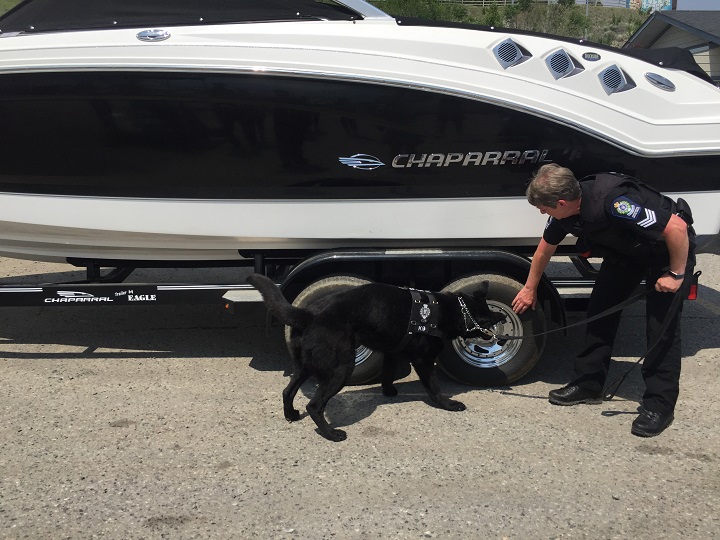British Columbia’s annual fight against invasive mussels renewed this week, with the opening of boat inspection stations across the province.

The Ministry of the Environment made the announcement on Friday, saying the stations will be open until late October to help prevent harmful zebra and quagga mussels from hitching rides on boats and entering B.C. waterways.
The boat inspection stations are a part of the province’s Mussel Defence Program, which also includes lake monitoring and education.
The province said in 2020, nearly 30,000 inspections found 16 mussel-fouled boats coming from Ontario, Arkansas, Wisconsin and Manitoba.
The B.C. Conservation Officer Service will check boats, with inspectors reminding boaters about cleaning, draining and drying boats when moving between lakes and rivers.
“Invasive species like zebra and quagga mussels are a major threat to our ecosystems and infrastructure in British Columbia,” said environment minister George Heyman.
“Through our Invasive Mussel Defence Program, we’re taking the necessary steps to protect our waterways today and for the years to come.”
Anyone transporting a watercraft (sailboats, motorboats, car toppers, kayaks, canoes and paddleboats) in B.C. is required to stop at an open inspection station. Failing to stop can result in a $345 fine.

The month of May is also being billed as Invasive Species Action Month, and the province is urging residents to help protect local lands and waters.
According to the province:
- Unlike B.C.’s native mussels, zebra and quagga mussels attach to hard surfaces, allowing them to move between waterbodies by boats and equipment.
- These mussels then multiply rapidly and are extremely difficult to eradicate once they become established in an area.
- A 2013 economic impact study said invasive mussels could cost B.C. $43 million a year if they were introduced into provincial waterways.
- The study listed hydro, agricultural irrigation, municipal water supplies and recreational boating as being impacted by invasive mussels.
- The study did not include additional impacts on commercial and recreational fisheries, tourism or property values.

In related news, the ministry says Canadian and American officials have recently been responding to zebra mussels arriving in North America through aquarium plants commonly sold as moss balls in pet stores and garden centres.
The ministry said more than 9,000 moss balls, suspected or confirmed to be contaminated with zebra mussels, have been seized or surrendered to B.C. conservation officers since early March 2021.
People can report sightings of invasive mussels anywhere in B.C. by calling 1-877-952-7277 and report any invasive species sightings using the Report Invasives BC smartphone app.
More information about invasive mussels can be found on the Invasive Mussel Defence Program website.



Comments